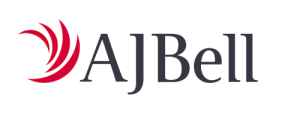During September, our net asset value return was -0.2% and shareholder returns were 2.0%, in comparison to the FTSE All World Index return of -0.4%.
September was another weak month for risk assets (like equities), with interest rates now expected to remain ‘higher for longer’ and a fresh surge in oil prices acting to cool market sentiment after what was broadly a positive summer for equity market performance. The degree to which the timing of rate cuts has been pushed out is notable (at the start of the 2023, the first cut in the US was priced for September), in part reflecting the absence of a pronounced economic downturn (thus far). This, in conjunction with concerns around rising bond supply, sent yields to fresh cycle highs. Furthermore, rising oil prices (+12.7%) set an ominous tone, despite plentiful European gas stocks and soft global manufacturing activity.
Energy stocks outperformed for a third consecutive month in September (+6.2%), reflecting the largest quarterly rise in Brent Crude oil prices (+32.1% in the third quarter) since Russia’s invasion of Ukraine began – a significant increase in the context of possible recessions. Much of this Brent upwards move has been supply driven, with OPEC’s (Organization for Oil Exporting Countries) latest extensions to its voluntary production/export cuts aimed to further draw down global oil inventories, a driver of the upward trend in energy prices seen year-to-date. In contrast, technology stocks suffered in September. Mega-cap technology names have largely retained the lofty valuations they achieved during the pandemic, supported by still optimistic expectations around the earnings they could generate in the future. However, the sector is not altogether immune to a weaker consumer, and the bar has been set relatively high for upcoming third-quarter earnings updates, where consensus expects the largest technology stocks to significantly outgrow the overall S&P 500 Index.
Across regions, UK shares delivered the strongest performance (+2.5%), with Japan (+1.7%), China (+1.0%) and Europe (-0.2%) outperforming the global benchmark. UK shares continue to trade at a historically wide discount relative to other regions, and sterling weakness (-3.7%) provided further support in September. With its large exposure to the energy and financial sectors, the UK market is a beneficiary of higher oil prices and rising interest rates. In Japan, optimism around reforms to corporate governance, and continued loose monetary policy from the Bank of Japan, drove shares higher. US shares (-1.0%) underperformed in September, reflecting weakness across technology names that constitute a large proportion of the region’s market capitalisation. Uncertainty around a looming government shutdown, with funding authority for the federal government expiring at month-end, was an additional headwind for US equity market performance.
Apple (-5.4%), which is held at an underweight position relative to the benchmark, was the most significant positive contributor to relative returns in September. Apple’s shares fell in early September after reports that Chinese government workers have been banned from using iPhones – a reflection of steadily rising tensions between the US and China, and Beijing’s desire to reduce its dependence on US technology. The launch of Apple’s iPhone 15 line-up was tainted by new product releases from Chinese rival and “national champion”, Huawei, which has stepped up competition in a bid to recapture Chinese market share after the US blacklisted the company from accessing advanced chip technology. The Trust’s overweight position in Humana (+9.6%), the US-based managed healthcare giant, also saw strong performance, driven by robust Medicare Advantage membership growth and rising medical premiums. Conversely, the Trust’s overweight position in Smurfit Kappa Group (-16.8%), a leading paper-based packaging producer, was the foremost detractor from relative returns over the month. The market was surprised by the announcement of Smurfit Kappa’s merger with WestRock to expand into the US and, despite announcing the deal would boost group near-term earnings per share by a “highsingle digit” percentage, the price action signalled concern that the 36% premium offered amounted to overpaying for WestRock’s assets.
We ended the month at a discount of 9.1%, narrowing from a discount of 11.0% at the end of August. Net gearing (borrowing) continued to be conservative at 5.2% (with debt at fair value) for month-end, reflecting our expectation that markets will remain volatile in the short term. Nonetheless, F&C Investment Trust’s corporate structure makes us well-placed to withstand further market volatility, and we remain focused on the long-term opportunities for the benefit of our shareholders.









